So who's the plaintiff in the first lawsuit challenging the legality of the steep tariffs that President Donald Trump imposed on Chinese goods which has triggered a trade war that could upend the U.S. and global economy?
It's Emily Ley, a small business owner from Pensacola, Florida, who displayed the courage lacking elsewhere when she filed a lawsuit in federal court earlier this month asking a judge to declare Trump's China-related executive orders unconstitutional and prohibit Customs and Border Protection from enforcing the increased tariffs on Chinese imports.
It's clear that the Republican-controlled Congress won't take any action to reassert the legislative branch's authority over trade. Several Republican senators have broken with Trump over tariffs and expressed support for restricting the president's ability to unilaterally impose tariffs, but there likely aren't enough votes to overcome a filibuster. House Speaker Mike Johnson has made it clear the he'll exhaust all legislative tools to prevent a vote on repealing Trump's tariffs.
And major corporations fear that going against Trump over tariffs will result in them being targeted for retaliation.
The U.S. Chamber of Commerce, the largest and most influential pro-business lobbying group, might have been expected to step into the breach, but has yet to initiate any legal action. Fortune, citing unnamed sources, reported last week that the Chamber of Commerce "is considering suing the Trump administration to block the implementation of the president's new tariffs."
Big Tech CEOs like billionaires Jeff Bezos, Tim Cook and Mark Zuckerberg kept silent on the impact of Trump's tariff policy. Lauren Goode, in a story for Wired, wrote that there was a "cold logic" behind the Big Tech leaders' decision not to challenge the tariffs publicly even though their companies collectively lost trillions of dollars in the plummeting stock market.
Goode wrote:
"The US has become a highly volatile nation where the whims of the president must be taken into consideration before using any political chip or making a public statement, especially in an environment where that statement could be irrelevant an hour later."
Instead, the Big Tech leaders have lobbied behind the scenes to get exemptions for their companies. Late Friday, U.S. Customs and Border Protection announced that computer chips, semiconductors, laptops and their components, smartphones and other electronic products would be exempt from the tariffs on Chinese imports that now total 145 percent.
But on Sunday, in a post on his Truth Social platform, Trump walked back the tariff exemption announcement on imported electronics from China, writing that "NOBODY is getting 'off the hook' for the unfair Trade Balances ... especially not China which, by far, treats us the worst!"
And in the escalating trade war, The New York Times reported Sunday that China has suspended exports of a wide range of critical minerals and magnets which are key components used by automakers, aerospace manufacturers, semiconductor companies and military contractors around the world.
So could the fate of the U.S. and global economy rest on the shoulders of a female small-business owner who earlier this month filed a civil lawsuit in federal court in Pensacola, which named Trump and Homeland Security Secretary Kristi Noem among the defendants, Ley claimed the exorbitant China tariffs will harm her company.
Ley is the founder and CEO of Simplified, which sells organizing planners and paper products that her company designs for busy women that are manufactured in China.
Previously in such cases, Ley might have been represented pro bono by some Big Law firm. But many of these firms have bent the knee after being threatened by Trump.
Instead, she is being represented by a non-profit libertarian legal group, the New Civil Liberties Alliance (NCLA), which in the past has received financial backing from Donors Trust, a group with ties to conservative legal activist Leonard A. Leo of the Federalist Society, as well as billionaire industrialist Charles Koch, The New York Times reported.
Fast Company, a progressive business media website, said it's "significant" that Ley, a registered Democrat, is being represented by the NCLA, which has championed conservative causes. The NCLA has won some high-profile victories in the Supreme Court that chipped away at the regulatory powers of government agencies.
"NCLA’s involvement reflects the extent to which opposition to Trump’s tariffs cuts across party lines," Fast Company wrote.
John Vecchione, NCLA's senior litigation counsel, told Politico that he thought fear was the main reason that no one else has filed a case challenging the tariffs.
“I think some in the profession are afraid. They’re just afraid, and their clients are afraid. They’re afraid of the administration,” Vecchione said.
Ley never imagined a month ago that she would be engaged in a legal battle with the president of the United States. In early March, she was giving TV interviews to promote her latest project, "The Simplified Cookbook."
She told CBS News Detroit on March 3:
"I'm a busy mom. I have three kids and I run a company and I need easy recipes. So I am constantly talking with men and women who want a go to place where they can find recipes that are easy to make and get dinner on the table super fast. ...
"I needed a place where I could find recipes that I could make in between soccer games and ballet practice and getting the kids to and fro and so it was really, really fun to dive into."
But the next day, Trump announced plans to raise tariffs again on Chinese imports, China retaliated, and Trump announced an even bigger tariff increase on March 12. The baseline tariff on Chinese goods, scheduled to take effect on April 2, totaled 54%. (it's since been increased to 145%).
And Ley decided that same day that she wanted to give people a better understanding of how the rising tariffs would adversely impact a small business like Simplified.
She told Fast Company:
“I was seeing so much misinformation and misunderstanding about who pays the tariffs, and what they’re for. I just felt like I needed to share a small business perspective that came from a real person, a real human.”
So on March 12, Ley put up a post about tariffs on her Instagram account, which has about 300,000 followers. She began by noting that her Pensacola-based company, which employs nine women, has since 2017 paid $1.17 million in tariffs to the federal government. She wrote that in 2025, Trump's increased tariffs would cost her company hundreds of thousands of dollars, driving up prices for her customers and salaries down for her employees.
"I cannot be quiet about this anymore," she concluded. "Tariffs are killing businesses. And communities. And customers."
Her Instagram post went viral and it caught the attention of NCLA lawyers who filed the civil lawsuit on her company's behalf on April 3 before the U.S. District Court for the Northern District of Florida.
In a CNBC interview, Ley said she had no contact with either Leo or Charles Koch. A spokesman for Stand Together, the umbrella organization that includes the Charles Koch Institute told The New York Times that “we are not involved in this case.”
Ley told CNBC that she was "thrilled to partner with an organization (NCLA) that believes in the Constitution and in the checks and balances that it sets forth."
"My ultimate goal is to be a voice for the hundreds of thousands of small businesses across the United States who are impacted so devastatingly by these tariffs. … So truly it is my hope that the illegality of this comes out and that these tariffs and the way that they have been implemented is shot down."
Now the Trump regime can't dismiss the NCLA as a bunch of liberals. The NCLA supported lawsuits to stop President Joe Biden's Department of Education from cancelling student loan debt, claiming that such actions were illegal because they hadn't been authorized by Congress.
And in its biggest victory, NCLA lawyers brought the case that resulted in the 2024 ruling by the U.S. Supreme Court overturning its landmark 1984 "Chevron deference" ruling that gave federal agencies such as the Environmental Protection Agency wide powers to interpret laws and decide the best ways to apply them. Instead, SCOTUS ruled that courts should rely on their own interpretation of ambiguous laws.
The NCLA, which was founded in 2017 by Columbia University constitutional law professor Philip Hamburger, says its mission is "to tame the unlawful power of state and federal agencies."
In a press release announcing the lawsuit, Simplified v. Trump, et al, NCLA senior litigation counsel Andrew Morris, said:
“By invoking emergency power to impose an across-the-board tariff on imports from China that the statute does not authorize, President Trump has misused that power, usurped Congress’s right to control tariffs, and upset the Constitution’s separation of powers.”
In February and March, Trump invoked the 1977 International Emergency Economic Powers Act (IEEPA), which authorizes specific emergency actions to protect the U.S. from foreign threats, claiming that China had failed to stem the flow of precursor chemicals, used to make fentanyl, by criminal cartels. Trump later claimed that trade deficits constitute a national emergency.
In its complaint filed in court, the NCLA said the IEEPA authorizes such emergency actions as imposing economic sanctions or freezing assets, but doesn't authorize the President to impose tariffs. And the complaint noted that in its nearly 50-year history, no president, including Trump in his first term, has ever tried to use the IEEPA to impose tariffs.
The lawsuit states: “Congress passed the IEEPA to counter external emergencies, not to grant presidents a blank check to write domestic economic policy.”
And the lawsuit emphasizes that under Article I of the U.S. Constitution, Congress has sole authority to control tariffs, which it does by passing detailed tariff statutes. It said the President cannot simply bypass those statutes by invoking "emergency" authority in another statute that doesn't mention tariffs.
“The Constitutional power ‘to lay and collect Taxes, Duties, Imposts and Excises’ and ‘to regulate commerce with foreign Nations’ belongs to Congress. The Administration’s actions followed none of these constitutional commands, and the statute it cites does not even use the word ‘tariff’ or ‘tax.’ This unlawful ‘impost’ must fall,” Vecchione said in the press release.
The NCLA's complaint said that if Trump were allowed to simply declare that trade deficits constitute a national emergency and impose tariffs, he "will have nearly unlimited authority to commandeer Congress's power over tariffs."
And in this particular case, a representative of the non-profit Brennan Center for Justice, a liberal legal group, agreed with the NCLA's argument over what the IEEPA authorizes the president to do.
Liza Goitein, senior director of Brennan's liberty and national security program told Politico:
“There is absolutely a basis on which to challenge the use of IEEPA for tariffs based on the Supreme Court’s own jurisprudence” and “there’s some likelihood of success on this lawsuit on that grounds."
Politico also reported that the Retail Litigation Center, part of the Retail Industry Leaders Association, which represents big companies like Target, Best Buy and Gap, welcomed the lawsuit. But so far these giant retailers have not taken legal action on their own.
The RLC told Politico:
"Congress did not give the President the authority to unilaterally enact tariffs that so profoundly affect the economy and Americans’ pocketbooks. Before lasting damage is done to the economy and family budgets, leading retailers support timely judicial review of this abuse of authority from the White House.”
Vecchione told Politico that the NCLA and Simplified are not seeking a preliminary injunction to immediately stop Trump from collecting the duties because such ruling can be appealed and delay the case. Instead, he said they hope for a ruling by the end of the year that Trump's action was unlawful and unconstitutional.
In an interview for Fast Company, Vecchione said that while Simplified's case is focused on the Chinese tariffs, a ruling could impact the full scope of global tariffs that Trump imposed in early April on most countries around the world.
He told Fast Company:
“We are saying that the statute doesn’t allow the President to impose tariffs no matter what kind of emergency is declared or exists."
That interview occurred before Trump announced on Wednesday a 90-day tariff reprieve for most countries but not China. Instead, Trump ramped up the import duties on Chinese products.
Now the NCLA's lawsuit could be rendered moot if the mercurial Trump suddenly backs down and ends the trade war with China. But if he doesn't the case could ultimately end up before the Supreme Court. And then the six conservative justices would be torn as to whether to rule again in favor of expanding presidential power or protect U.S. businesses from a Trump-imposed economic disaster.
As for Ley, a month after she gave that TV interview promoting her cookbook, she found herself appearing with Vecchione on MSNBC to talk about her lawsuit against Trump over a tariff policy that went from "something scary in 2017" to something that "now feels absolutely devastating."
"It is a scary thing to take this risk and put ourselves out there and be the first. But I hope that what we’re doing serves as an example and it invites other businesses to come out and explain how these tariffs are hurting at a very deeply personal level. ...
"As an entrepreneur, as a creative, it devastates me and it feels catastrophic to have to look at the future of my American dream, of the American dreams of so many people, and feel like this is where it ends."
In a post over the weekend on her Instagram account, Ley quoted from an interview that she gave to Business Insider:
"I did not have it on my bingo card for 2025 to sue the president, but I am proud to stand up as a small-business owner, as a women-owned business. If this is going to be the end for my company, I'm going to go down fighting."
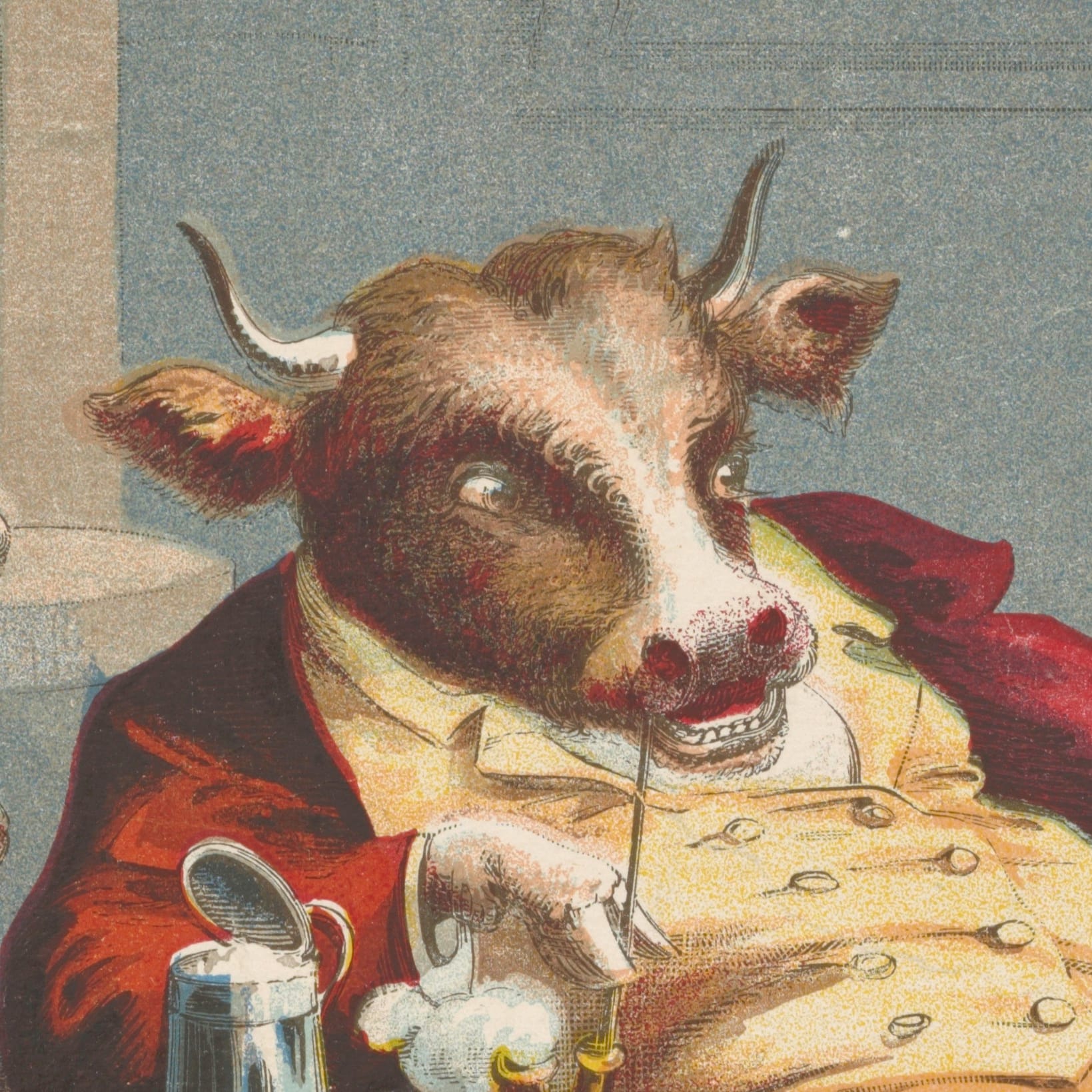



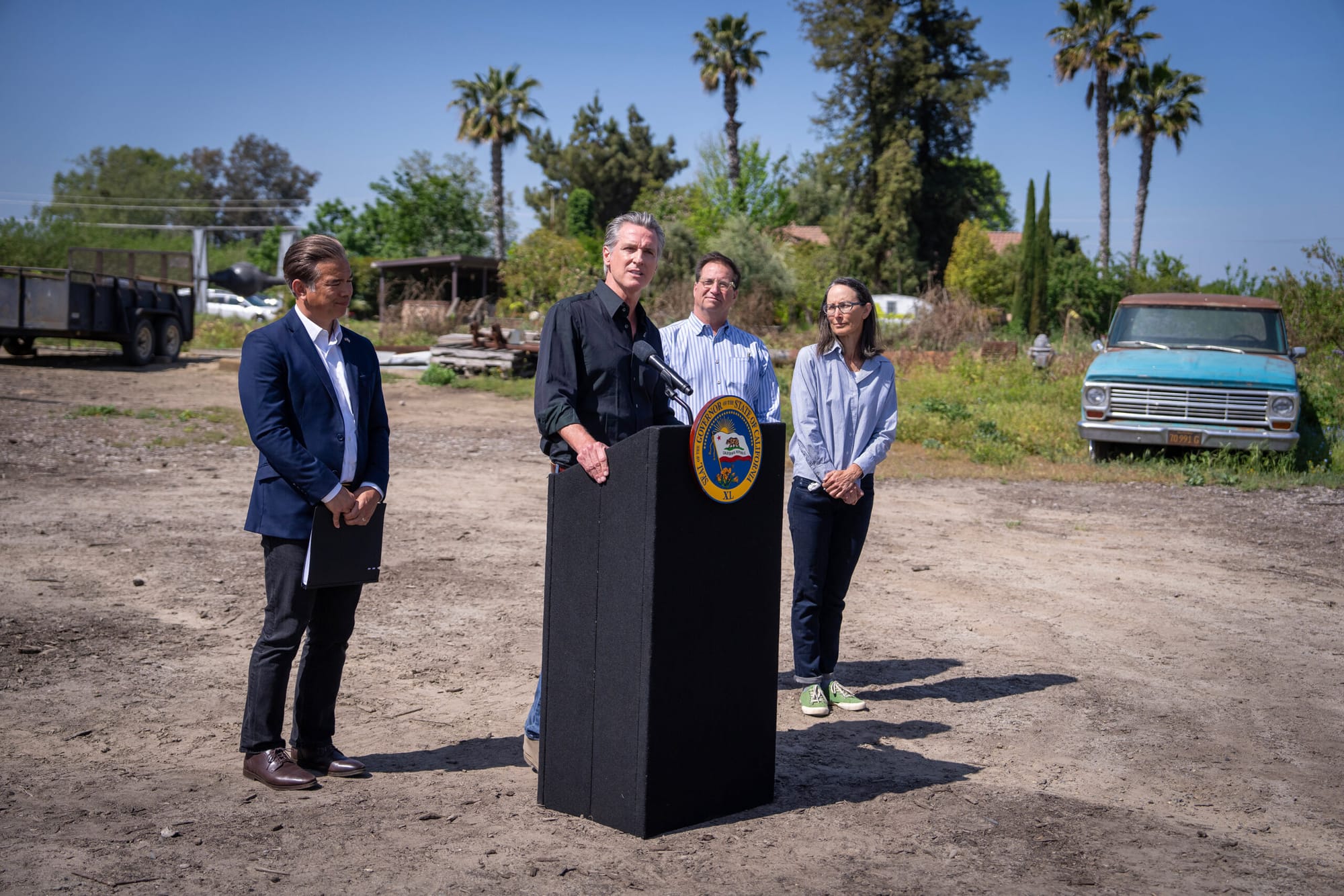

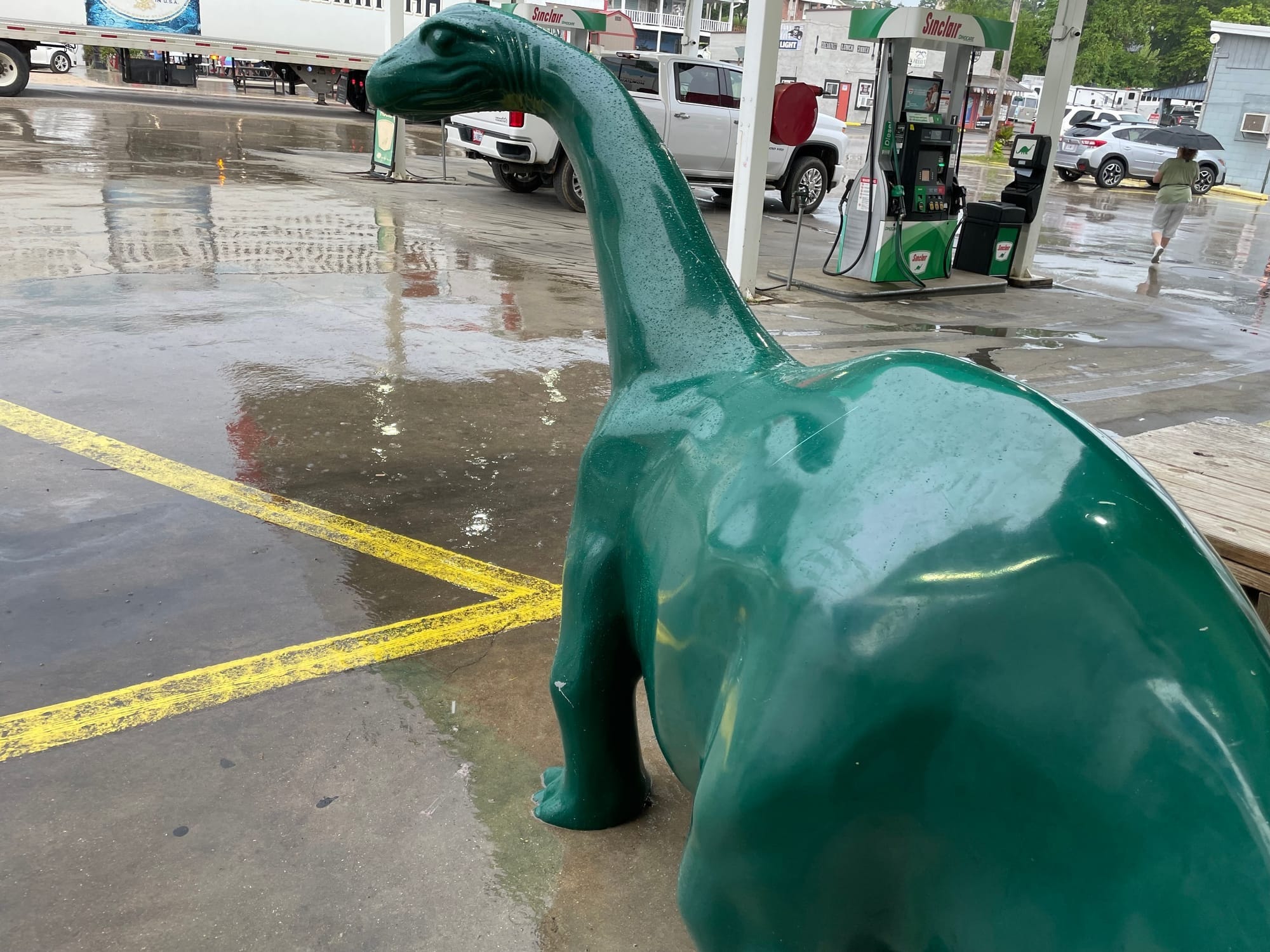




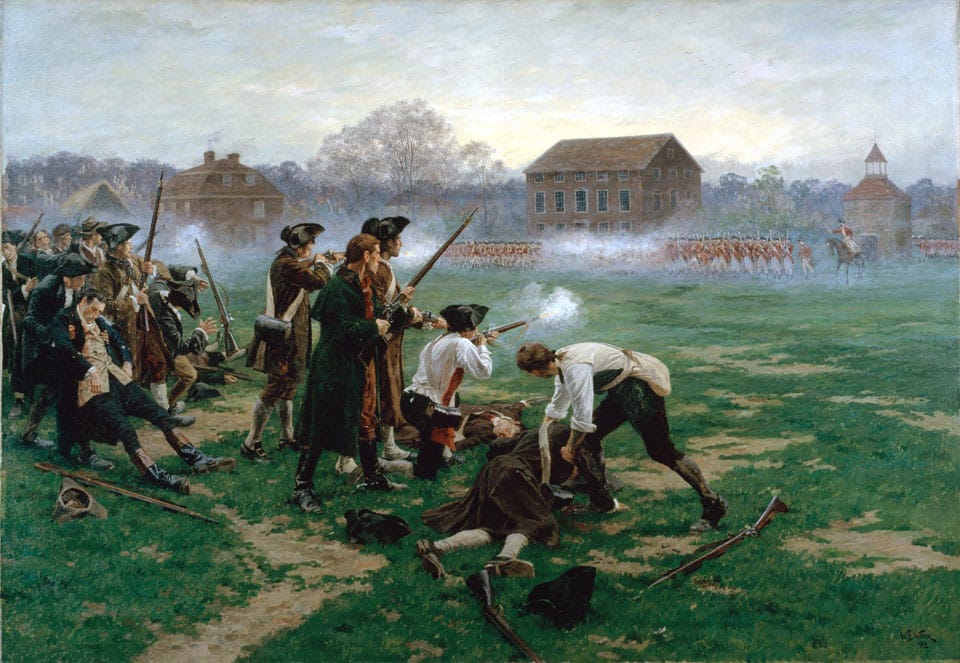

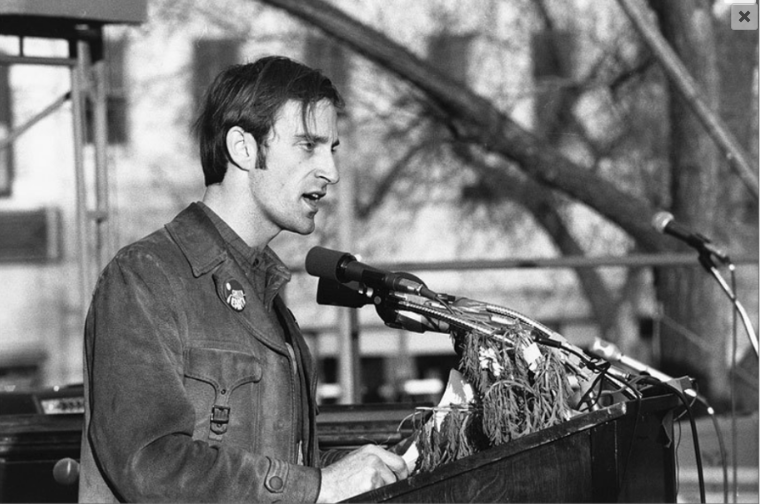

Comments
We want Uncharted Blue to be a welcoming and progressive space.
Before commenting, make sure you've read our Community Guidelines.